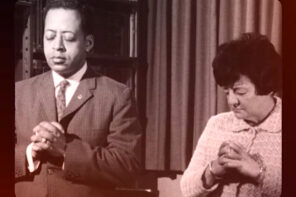Diagnosed with Hodgkin’s lymphoma in January, just shy of his thirteenth birthday, Daniel Hauser received one round of chemotherapy before walking away—well under the six treatments recommended by physicians. Despite chemotherapy’s 90% success rate, the Hauser family, who belong to a new Native American religious sect called the Nemenhah Band, opted to treat his cancer using natural healing remedies per the Nemenhah mission. Further, Daniel revealed to the court that he believed the chemo would kill him, later informing the judge in chambers that if forced into treatment he’d resist: “I’d punch them and I’d kick them.”
The case rose to public attention when Judge John Rodenberg ruled that Daniel’s parents were medically neglecting him by not pursuing the full course of chemotherapy, and ordered them to do so. Following the ruling, Daniel and his mother Colleen fled the state and headed for Mexico without notifying Daniel’s father of their plans. Judge Rodenberg, meanwhile, issued an arrest warrant for Colleen Hauser and ordered that Daniel be placed in foster care and evaluated by appropriate physicians. The arrest warrant eventually became a federal warrant involving the FBI, Interpol, and the national news media.
Daniel’s case coincided with a jury in Wausau, Wisconsin, finding a mother guilty of second-degree reckless homicide for praying instead of seeking medical help while her 11-year-old diabetic daughter Madeline died. Boston television stations covering the Hauser story interviewed Billy Best who in 1994, at the age of 16, fled Massachusetts rather than receive chemotherapy and radiation for his Hodgkin’s lymphoma. Best spoke to the Hausers before they fled, telling the press that the authorities should leave Daniel alone.
Cases like Daniel’s, Madeline’s, and Billy’s raise complex ethical questions. How much latitude should parents have in caring for their ill children? When should physicians and courts intervene? How much power should they have? How much say should children, especially adolescents and teenagers, have in their own heath care decisions in such cases? What role should traditional or alternative forms of health care play when children are afflicted with life-threatening diseases?
The moral gravity of these questions and Americans’ continuing fascination with things religious led the media to pick up Daniel’s story, closely following the search for him and his mother over several days. In fact, Daniel was the third most popular newsmaker between May 25 and May 31, just behind Sonia Sotomayor and Barack Obama.
In their day by day (sometimes hour by hour) reporting on the search for Daniel and Colleen Hauser, the news media often failed to recognize that most cases involving conflicts between religion and medicine, also concerning children and families, are resolved long before they become national news. Families with strong religious beliefs handle potential conflicts by selecting physicians they can get to know and who will work with them, both formally and informally. Once in the hospital, groups like the Hospital Information Service of the Jehovah’s Witnesses, located in Brooklyn, help health care providers and families alike understand their teachings. Hospital chaplains, hospital ethics committees, and high-risk management groups all help with emerging conflicts. If cases are referred to courts, as they sometimes are, they are often resolved quickly as courts generally agree that the state’s obligation to protect children is more important than their parents’ religious beliefs when a child’s life is in danger.
Daniel’s case was unusual; not in the conflicts his parents had with physicians, but in his mother’s decision to flee, prompting a national search and extensive media coverage. Despite its presence in the news media, it is important to think about this case and others in proportion to their numbers in the population—and not to draw broader conclusions about ongoing conflicts between religion, medicine, and children not evident in the data.
A week after they left, Daniel and Colleen returned home voluntarily and the arrest warrant was dismissed. Daniel is receiving court-ordered treatments, though a friend notes that Daniel is “weak and miserable” and remains “adamant against having the chemo.” Like many cancer patients, Daniel also receives natural or complementary and alternative treatments (in this case from his mother), and the tumor continues to shrink. According to family friend Dan Zwakman, the family believes the alternative treatment is working:
Given the fact that he’s been on the alternative all this time, and he just had a little chemo since he’s been back on it, like I say just two half-treatments, I think that’s a pretty good indication, it’s a real good indication that the alternative has been doing its job.




